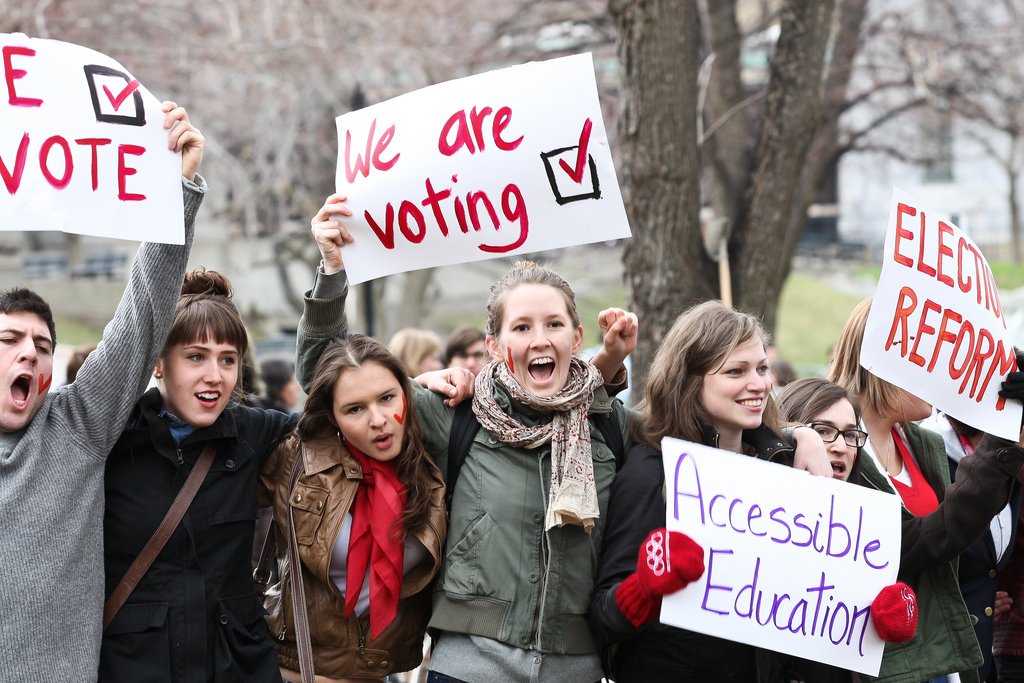 Jeremy Corbyn’s surprise General Election performance last month has been partly attributed to the increased turnout of younger voters, the narrative being that many were energised by Labour’s anti-austerity stance. Despite living in a constituency where the Liberal Democrats have historically been the main challengers to the Conservatives, I too was determined to vote Labour as a mark of support for the direction the party and the manifesto were heading in, if nothing else. However, whilst my age puts me at the heart of the youth voting spectrum, I feel entirely distant from the aims and objectives that supposedly unite 18-24 year olds.
Jeremy Corbyn’s surprise General Election performance last month has been partly attributed to the increased turnout of younger voters, the narrative being that many were energised by Labour’s anti-austerity stance. Despite living in a constituency where the Liberal Democrats have historically been the main challengers to the Conservatives, I too was determined to vote Labour as a mark of support for the direction the party and the manifesto were heading in, if nothing else. However, whilst my age puts me at the heart of the youth voting spectrum, I feel entirely distant from the aims and objectives that supposedly unite 18-24 year olds.
Firstly, Labour’s offer of free university fees was immaterial to my voting stance. Even though I consider investment in a highly educated workforce to be to society’s benefit, the policy probably wouldn’t affect my student debt or that of those around me. In fact, it would most likely only come into play for those at the entry-level voting age considering university education, so a relatively small portion of youth voters. If anything, by putting tuition fees back on the agenda, Labour simply reminded me not to vote Liberal Democrat.
Young people on the whole are supposedly anti-Brexit, with this election being our opportunity to wreak revenge on Theresa May for her hard Brexit stance. As my age and London postcode might predict, I voted to stay in the European Union, but this had surprisingly little impact on my recent vote. Whilst the pro-European stance of the Liberal Democrats appealed to me, I didn’t trust them to deliver for the 48% and found it impossible to untangle the approaches of other parties to what remains an intangible concept. Instead, my vote was grounded in the attitude I wanted to see in society, regardless of our post-Brexit status.
Corbyn has been credited for reaching out to young people via celebrities such as rapper Stormzy, grime artist JME, and singer Rag ‘n’ Bone Man. It is great to see possessing a political opinion becoming an integral accessory but younger voters shouldn’t be dismissed as changeable trend-chasers. If you fall into the young voter age bracket you are likely to know how it feels to be patronised, whether it be a regular, career-limiting experience, or the irksome outcome of a conversation with a distant relative. The last thing I want is for someone to fish for my vote on the basis of ‘this person you like is voting for me, you should too’, I want to be respected for my ability to analytically evaluate the manifesto of the main political parties and have my questions answered where flowery language has replaced clarity.
In writing this piece, I am not arguing that my opinions are in some way more representative of younger voters than the ideals ascribed to us by the media, but merely pointing out that if I deviate from these core standards there may be many others that do, too. If the voice of the young is ever to have any political clout when it comes to policy making, we need to stop simplifying our diverse reasons for voting a certain way under the banner of hedonistic idealism and demonstrate our ability to logically determine the society we want to live in.
Filed under: Politics

Comments